|
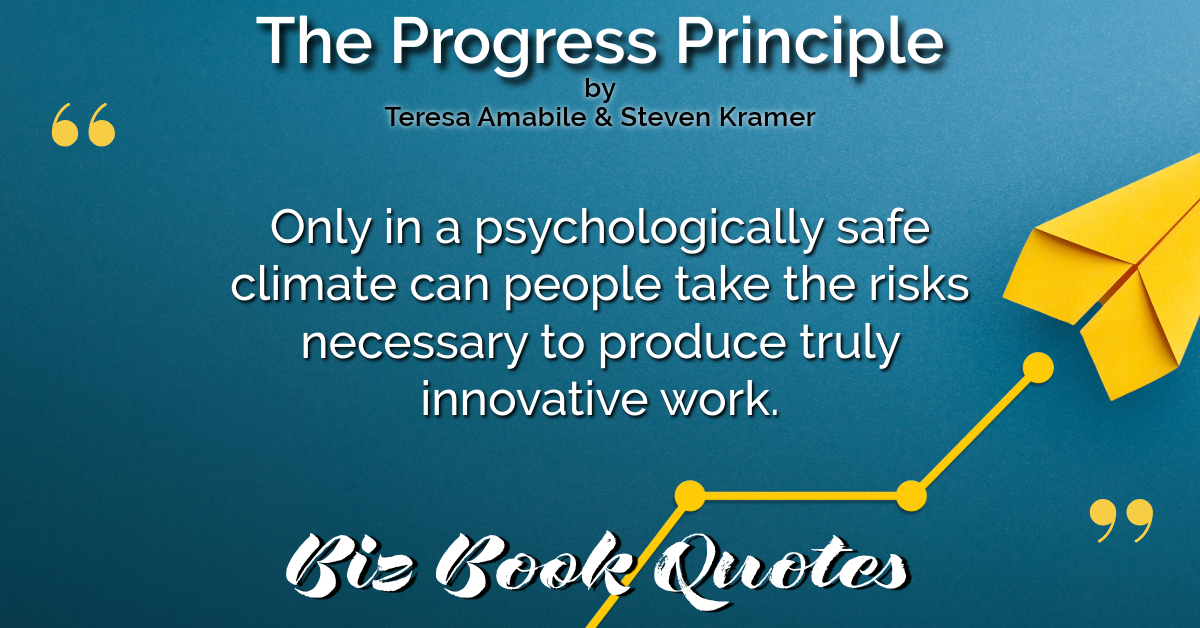
|
The Progress Principle:
Only in a psychologically safe climate can people take the risks necessary to produce truly innovative work.
|
107 |
|

|
The Progress Principle:
For optimal creative performance, go for low or moderate time pressure as a general rule – punctuated by occasional periods of focused urgency.
|
107 |
|
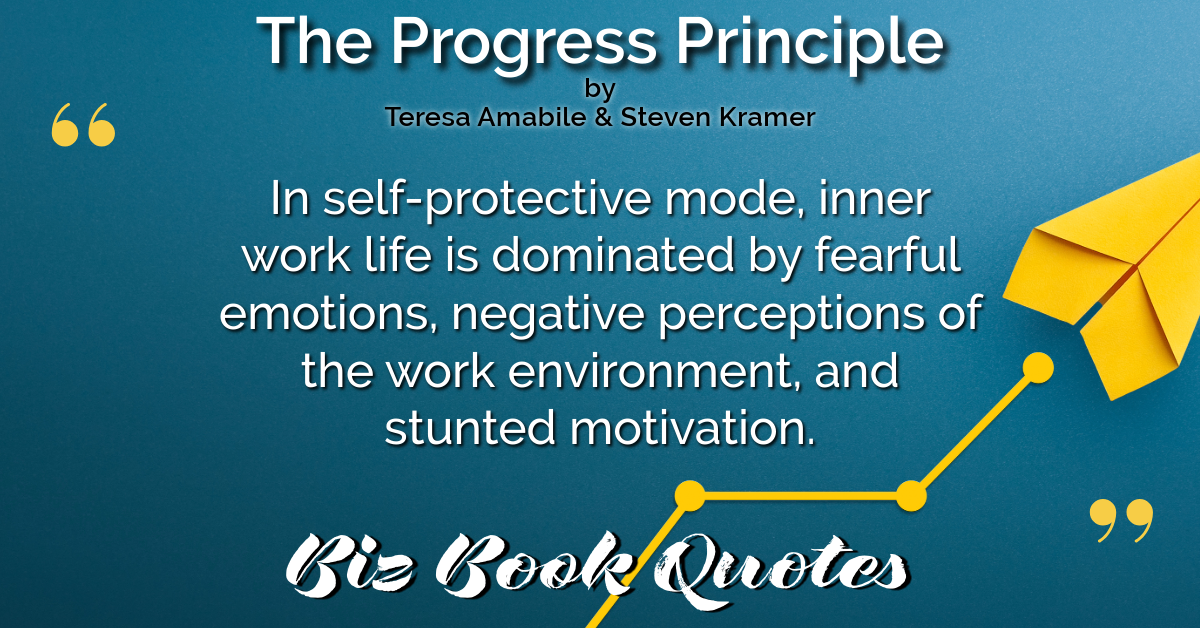
|
The Progress Principle:
In self-protective mode, inner work life is dominated by fearful emotions, negative perceptions of the work environment, and stunted motivation.
|
108 |
|
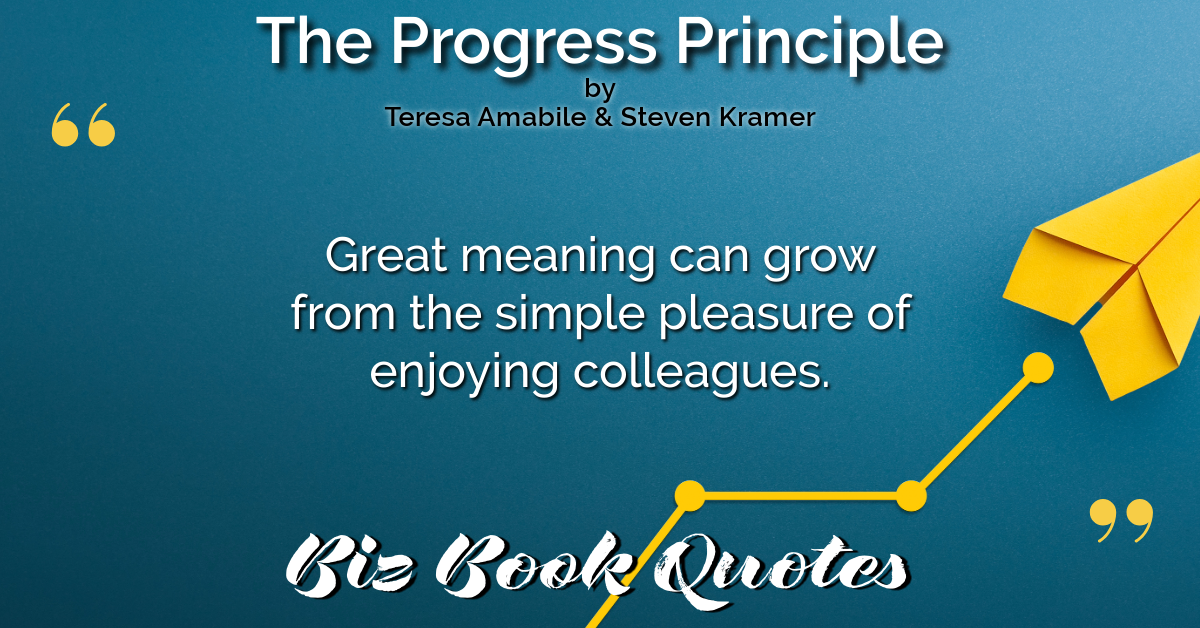
|
The Progress Principle:
Great meaning can grow from the simple pleasure of enjoying colleagues.
|
130 |
|

|
The Progress Principle:
When we care about the people we work with, we want to succeed for them.
|
131 |
|
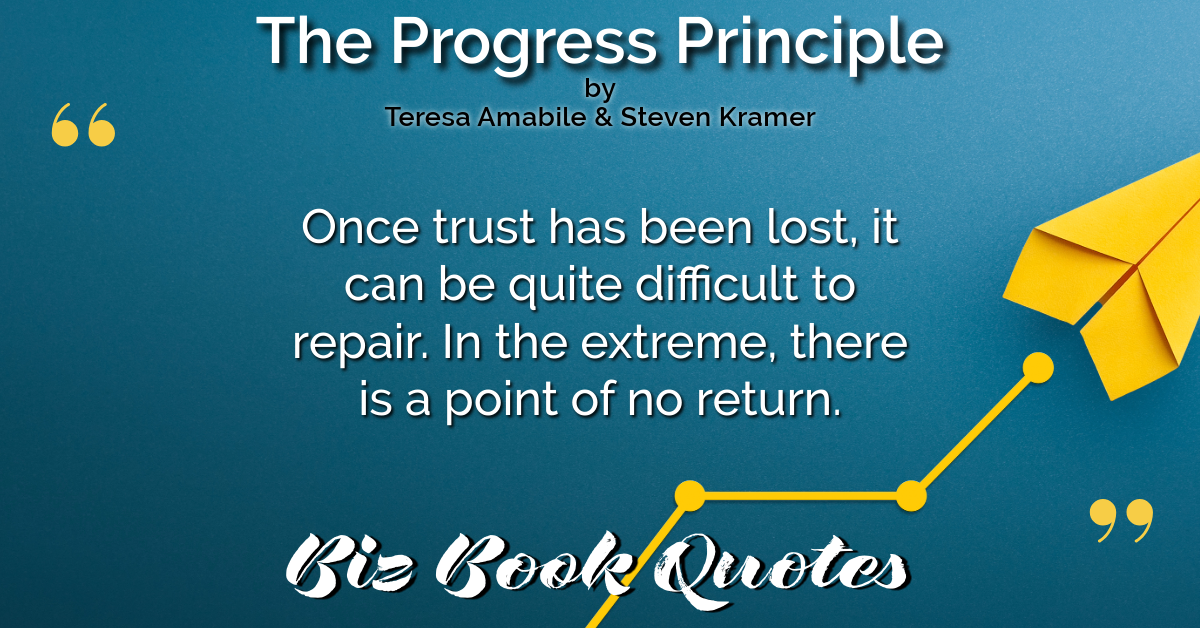
|
The Progress Principle:
Once trust has been lost, it can be quite difficult to repair. In the extreme, there is a point of no return.
|
145 |
|

|
The Progress Principle:
Generally, the more closely bonded team members are to one another, the better inner work life will be across a team, and the greater their progress.
|
151 |
|

|
The Progress Principle:
Far too many managers are unaware of the importance of progress and therefore neither worry about it nor act to support it.
|
158 |
|
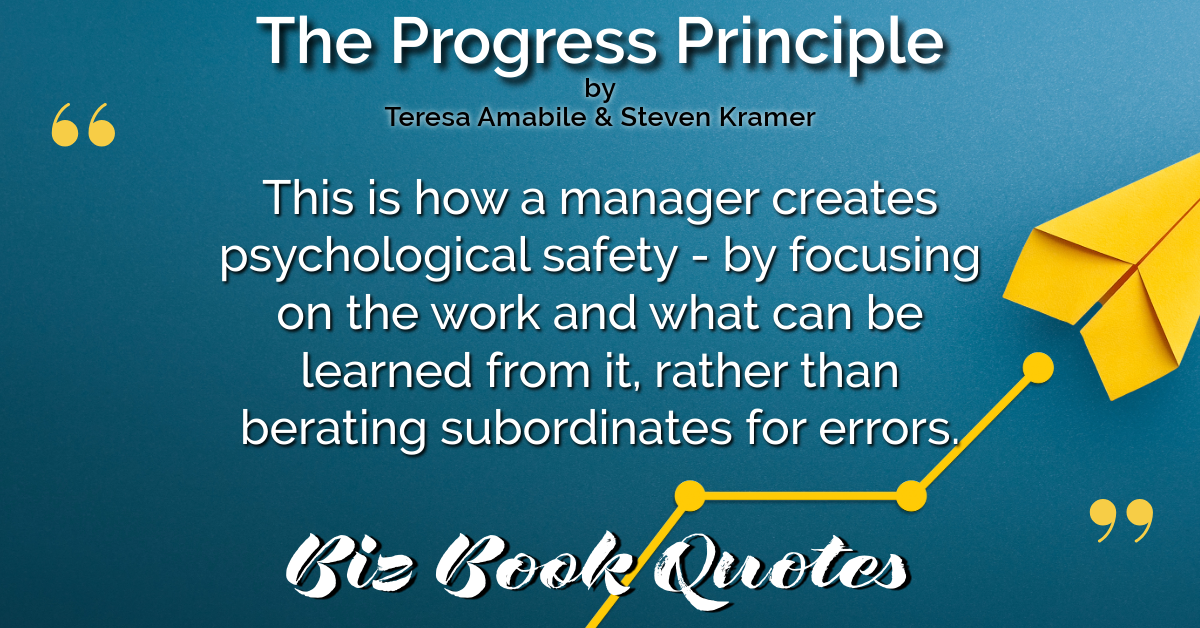
|
The Progress Principle:
This is how a manager creates psychological safety – by focusing on the work and what can be learned from it, rather than berating subordinates for errors.
|
177 |
|

|
The Progress Principle:
By its very nature, meaningful work is hard; people often get the greatest satisfaction from overcoming, the most difficult challenges.
|
177 |











